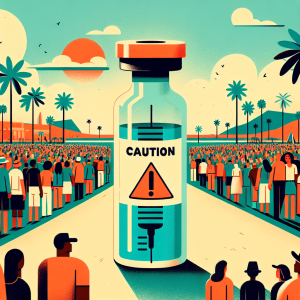
The End of Childhood Vacccines?
This week, the CDC’s Advisory Committee on Immunization Practices (ACIP) is set to debate whether to weaken or even remove recommendations for several routine childhood vaccines. Public health leaders warn the move could drastically lower vaccination rates and fuel new outbreaks of preventable diseases.
The meeting comes amid turmoil at the Department of Health and Human Services. Health Secretary Robert F. Kennedy Jr., a longtime vaccine skeptic, recently dismissed CDC Director Susan Monarez after she refused to approve vaccine guidance. Monarez will testify before Congress on her firing just as ACIP convenes September 18–19. Critics fear the panel, reconstituted by Kennedy in June, is being used to push ideology over science.
On the agenda are several cornerstone vaccines, including hepatitis B and the combined measles, mumps, rubella, and varicella (MMRV) shot. Kennedy allies argue hepatitis B, often spread through sex or drug use, doesn’t justify infant vaccination. Yet decades of data show that universal newborn immunization cut infection rates by 99% and prevents life-threatening complications. The MMRV shot, meanwhile, may face tighter restrictions despite evidence that parental choice around combined vaccines has worked safely for years.
Covid-19 and RSV vaccines are also under review. While Covid shots have FDA approval for high-risk groups, ACIP could recommend further limits. The panel may also revisit RSV protections, which only last year helped reduce hospitalizations in infants.
The stakes go beyond medical guidance. ACIP recommendations influence state school-entry requirements, insurance coverage, and programs like Vaccines for Children, which serves half of U.S. kids. Public health experts warn that rolling back vaccine guidance could make routine shots harder to access, particularly for low-income families, and deepen health inequities.
As one former CDC director put it, the U.S. may be on the verge of dismantling a vaccination system that has long safeguarded public health.



